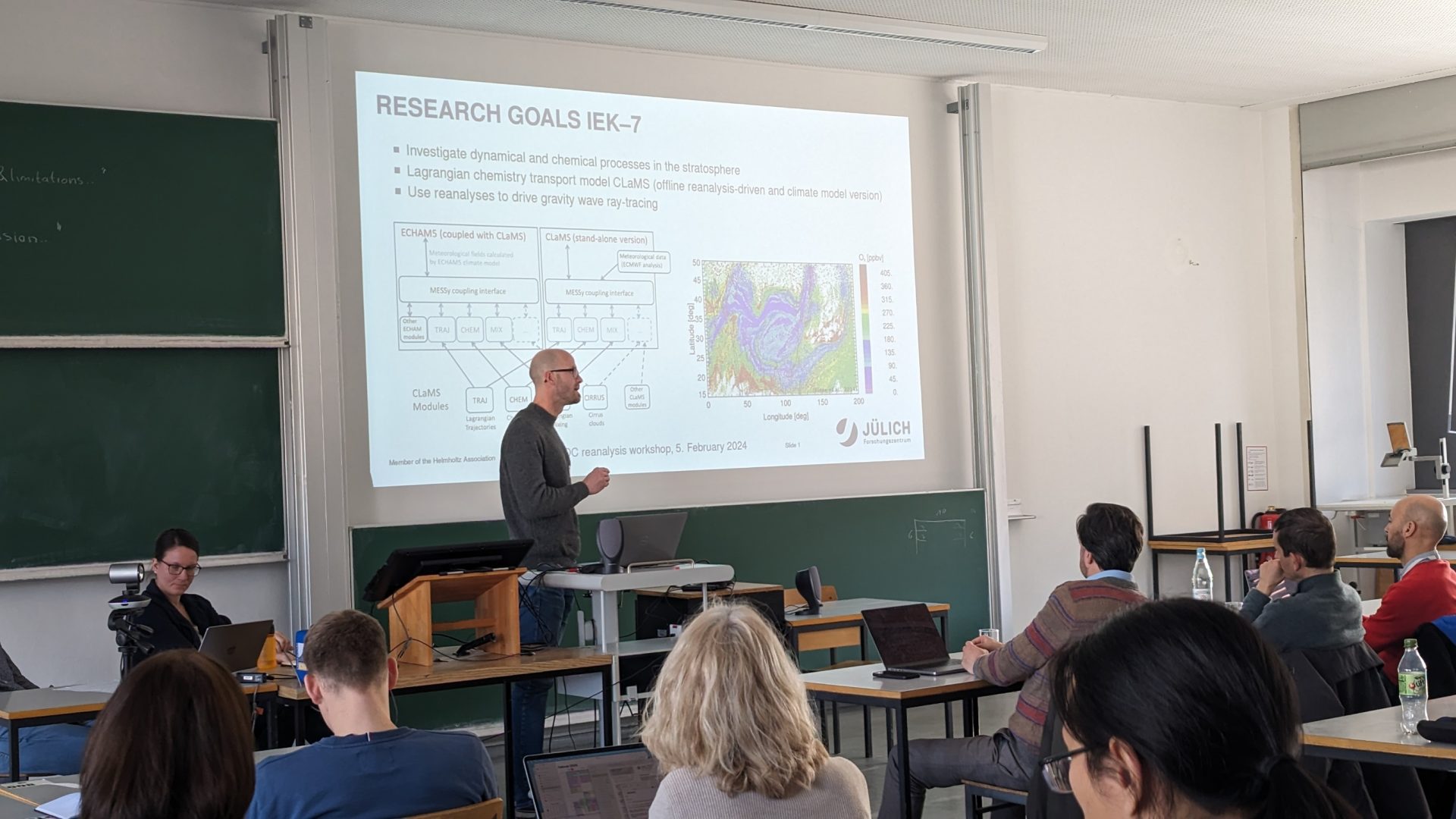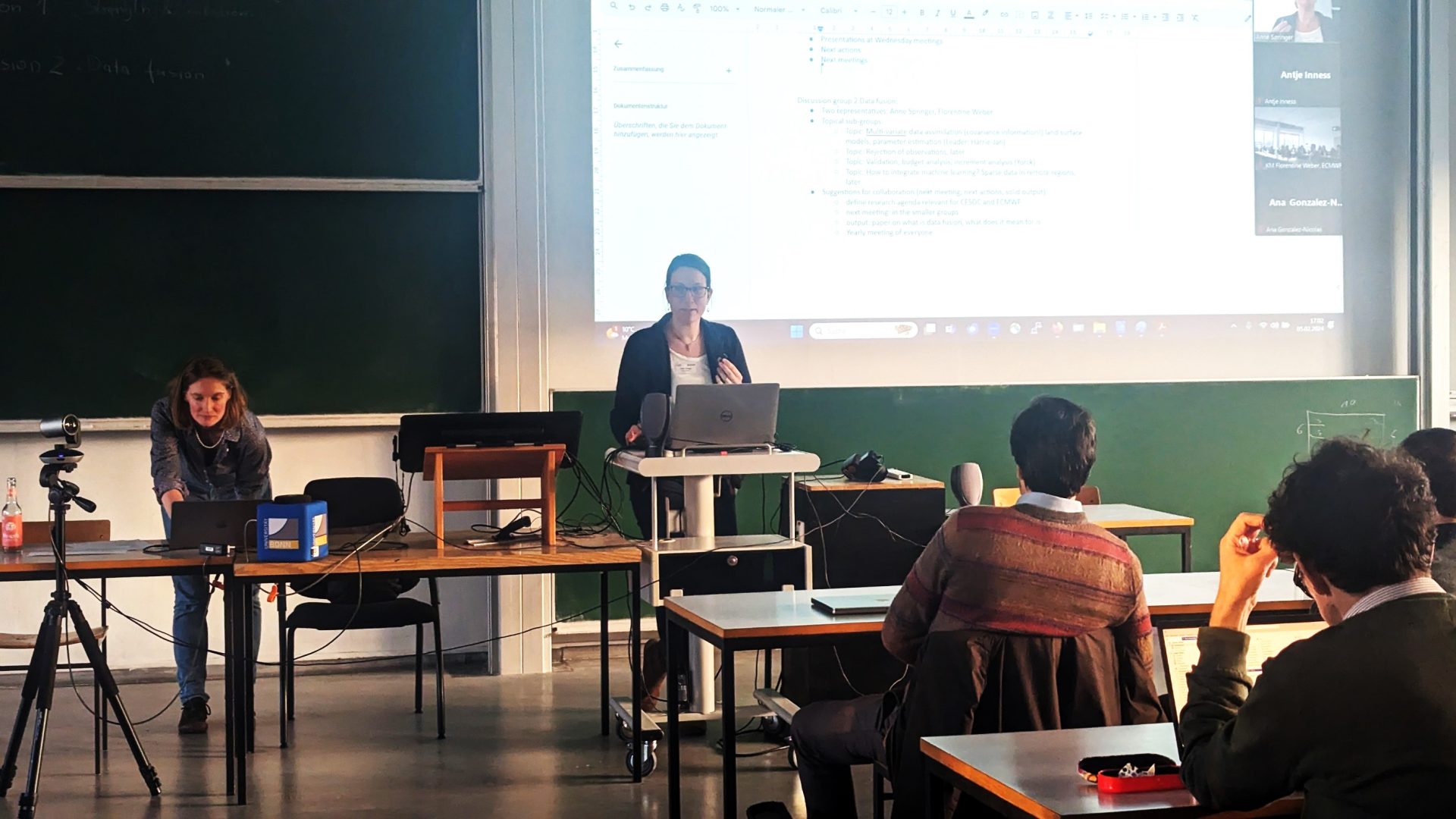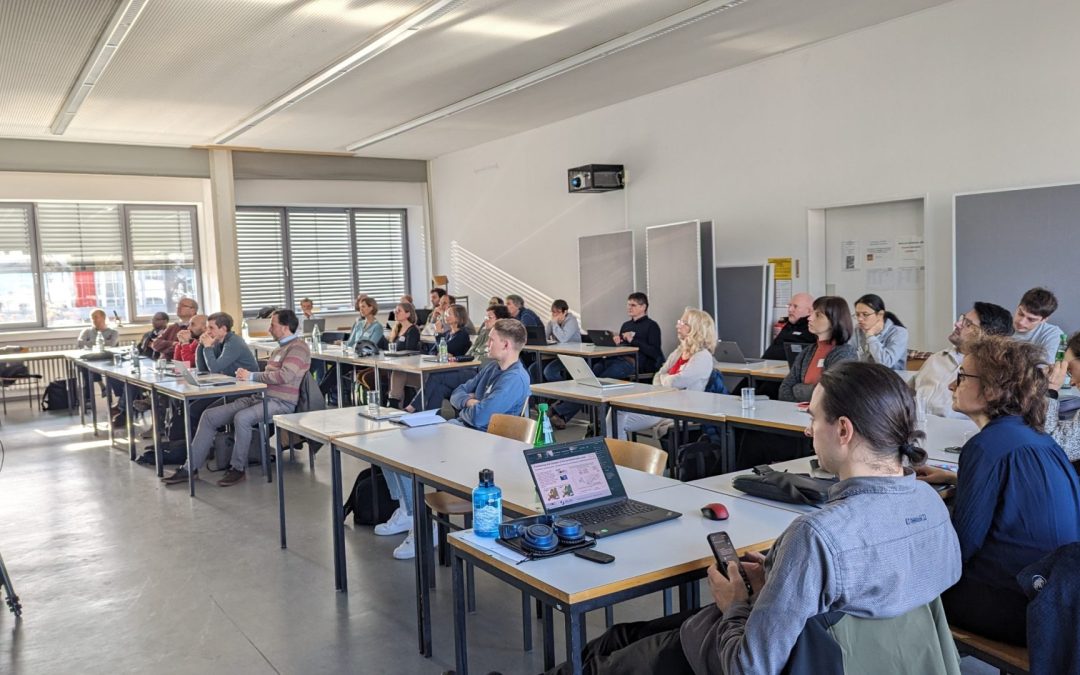At the dawn of February, a significant initiative took flight, marking the commencement of the CESOC-ECMWF Reanalyses Working Group.
Diverse experts convened from various fields at the University of Bonn (UB), University of Cologne (UoC), and Research Centre Jülich (FZJ), uniting under the banner of the Center for Earth System Observation and Computational Analysis (CESOC), alongside the European Centre for Medium-Range Weather Forecasts (ECMWF), to deliberate on future collaborative endeavours.
Reanalysis products entail the filling of data gaps and improved representation within observational datasets through model computations, resulting in a seamless dataset. They provide not only crucial data for meteorologists, environmental scientists, and researchers in various fields, but also serve as the foundation for weather and climate forecasts. For example, the ECMWF Integrated Forecast System (IFS) relies on the reanalysis of ERA5. Currently, efforts are underway to develop ERA6, with CESOC institutes providing support to ensure alignment with user preferences. User feedback via the EQC (Evaluation and Quality Control) mechanism remains crucial in this process.
Within the CESOC network, in the context of reanalyses, diverse research avenues are explored, ranging from stratospheric processes and tropospheric circulation to climate dynamics and extreme events. These endeavours contribute to advancing our understanding of long-term trends, particularly those related to clouds, humidity, and Arctic conditions.
Led by CESOC members Anne Springer (UB), Olaf Stein (FZJ), Felix Plöger (FZJ), and Florentine Weber (ECMWF), an inaugural meeting was orchestrated to unite researchers from the CESOC network and ECMWF. Held on February 5th, 2024, at the University of Bonn, the hybrid format attracted over fourty in-person participants and more than twenty online attendees.
Commencing with insightful presentations from ECMWF and CESOC representatives, the meeting set the stage for subsequent discussions. Subsequently, participants from UB, UoC, FZJ and ECMWF engaged in focused discussions covering the strengths and limitations of current atmospheric reanalyses and data fusion techniques. These interactive sessions unearthed numerous collaborative opportunities and charted pathways for the working group’s future endeavours.
The event not only facilitated knowledge exchange but also fostered networking opportunities, laying the cornerstone for collaborative efforts. Thus, the mutual exchange on reanalysis topics signifies the initial step towards achieving the group’s objectives, which primarily revolve around advancing understanding, exchanging insights, addressing technical queries, and catalysing joint projects within the realm of atmospheric, hydrology, and ocean reanalyses. In the coming months, exchanges will take place within sub-groups, where the following interest groups have emerged:
Group 1: Exploring the strengths and limitations of current atmospheric reanalyses
1.1 Investigating observations
1.2 Analysing atmospheric composition, including the troposphere and stratosphere, and their effects on dynamics
1.3 Exploring ERA6 access, workflow, and providing feedback
Group 2: Advancing data fusion techniques
2.1 Delving into multi-variate data assimilation within land surface models, encompassing covariance information and parameter estimation
2.2 Conducting validation, budget analysis, and increment analysis
For those interested in contributing to the discourse on reanalyses, reaching out to Florentine (florentine.weber@ecmwf.int), Anne (springer@geod.uni-bonn.de), or the CESOC coordination (info@cesoc.net) would be a promising avenue for engagement.
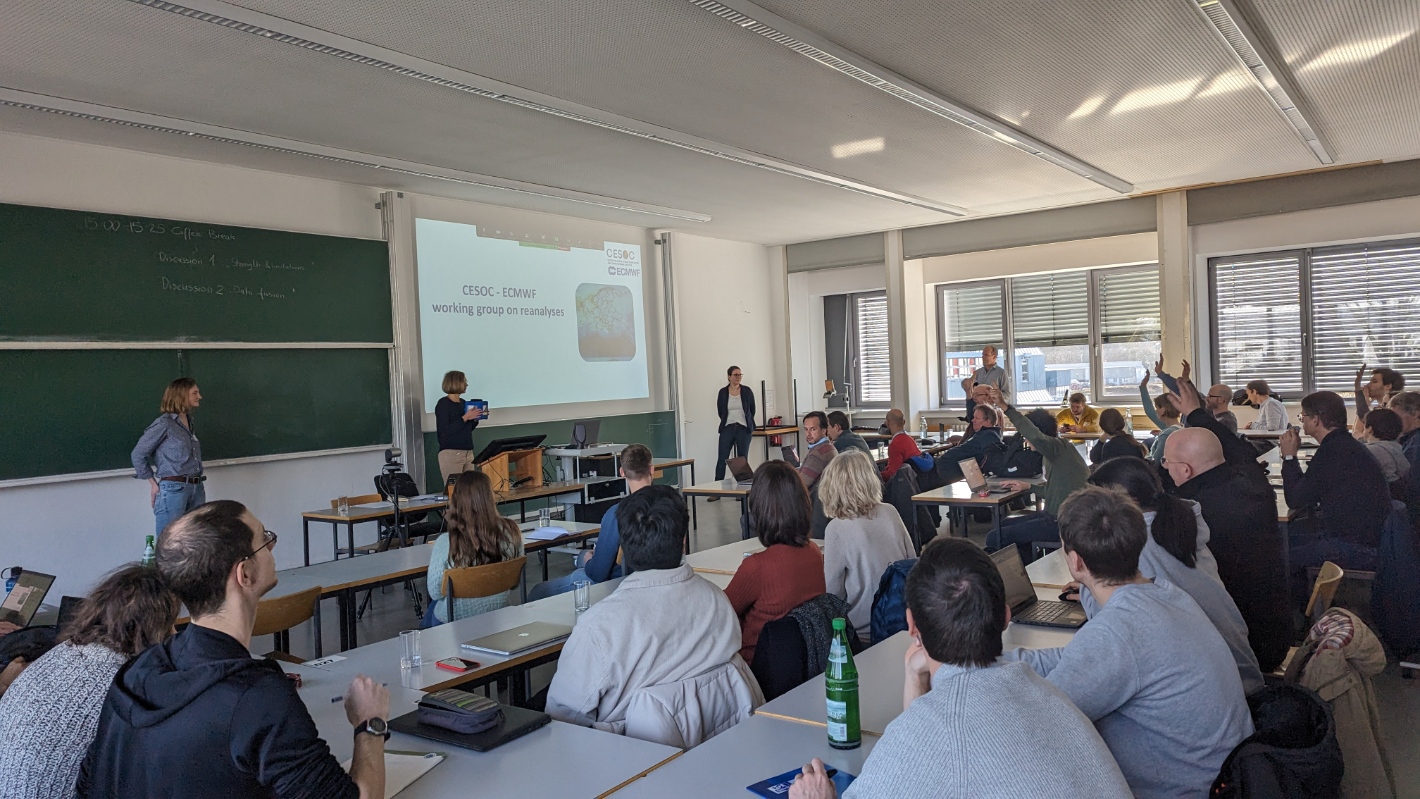
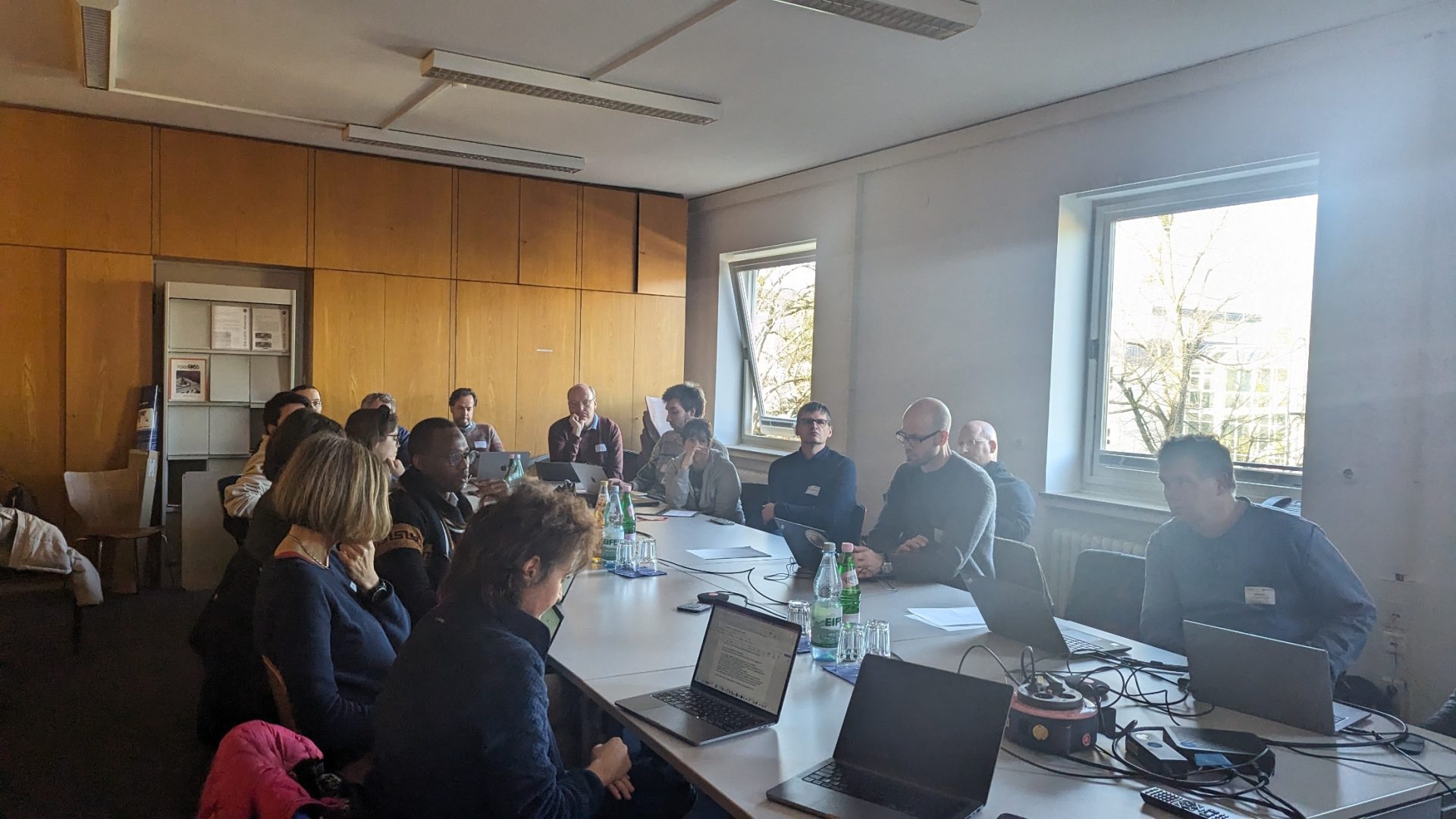
Pictures © Hana Mohammed / University of Bonn
